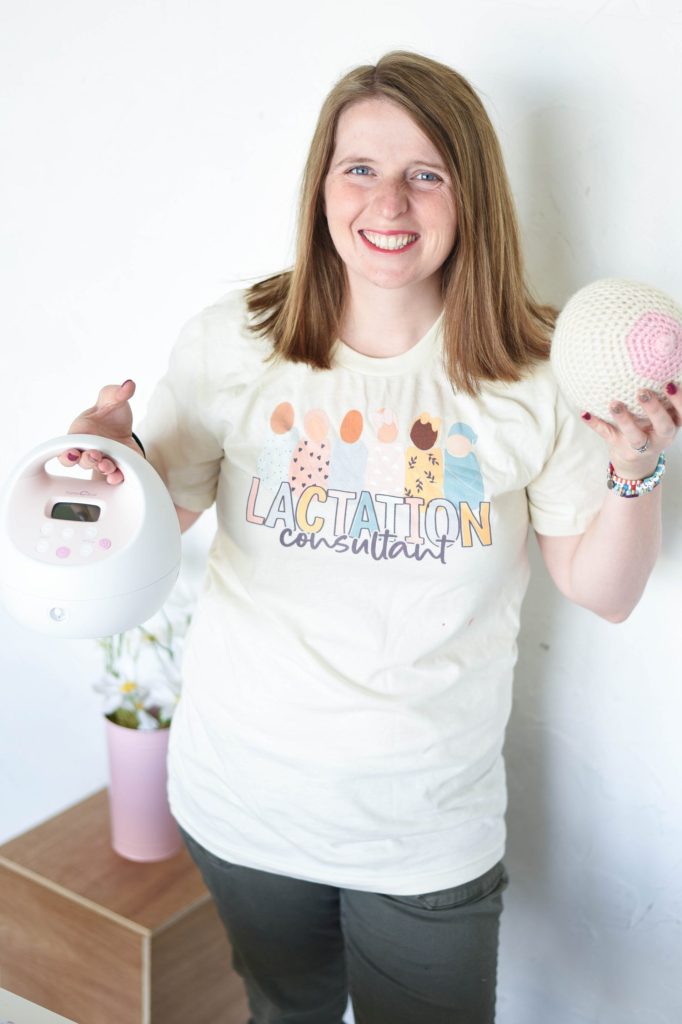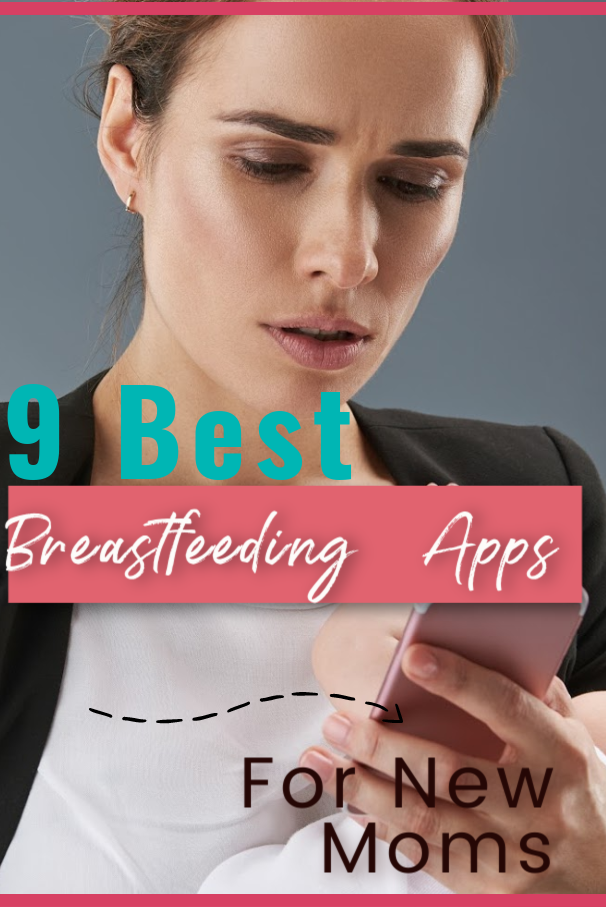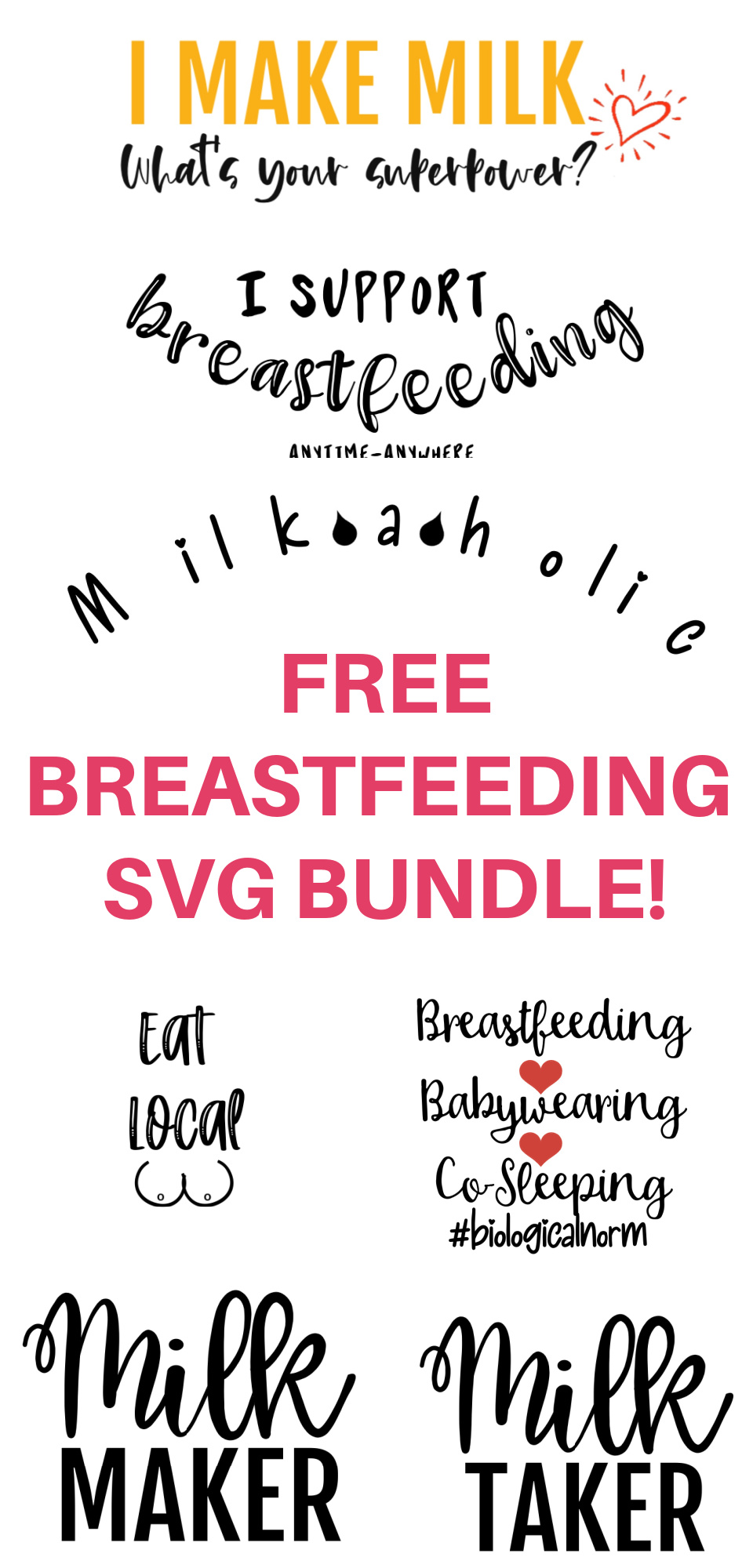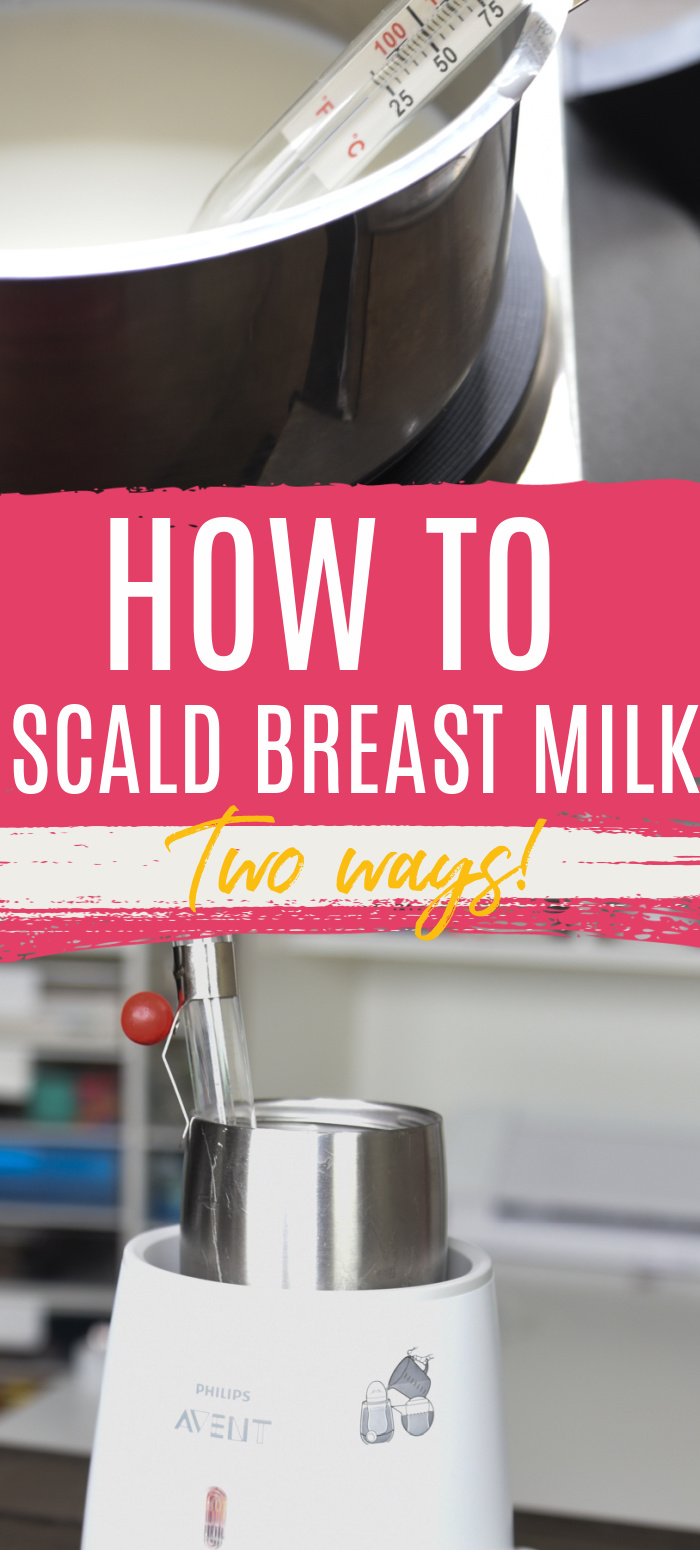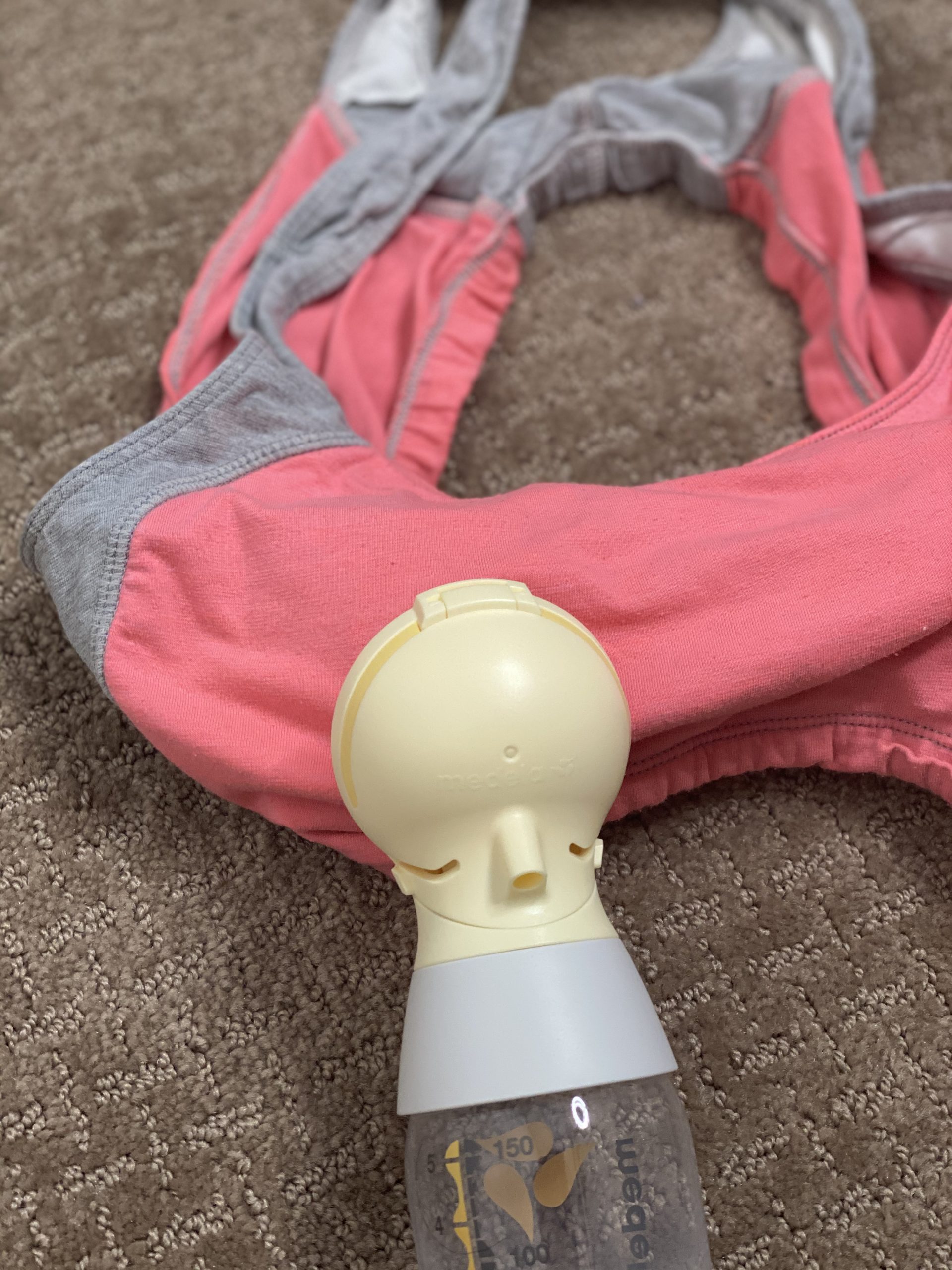Intermittent fasting is all the rage – but can you do it while breastfeeding as a new mom to lose some baby weight? Here is my experience and success with Intermittent Fasting while breastfeeding and what I found out, especially in regards to my milk production.
I started to do Intermittent Fasting when I was trying to lose weight and conceive a baby at the same time. I felt like it was a good idea, and the periods of time that I chose to eat worked well. I quickly saw results – and I got pregnant! After my son was born, I decided to try Intermittent Fasting out again, so I thought I’d share my personal experience – along with some tips for others to ensure they get enough calories and make sure they still make enough milk.

Many new and busy moms are anxious to lose weight after their baby’s arise. I believe it’s important to allow your body time to recover and to not feel pressure to “bounce back”. However, I also understand the desire to feel comfortable and confident in your own skin – and for many, that means modest weight loss.
A new mother’s health is important – but it often gets pushed to the side as she cares for her newborn baby. It’s easy to feel like you will just eat fewer calories, healthy fats, and exercise, but it’s not always that easy, especially when breastfeeding. The baby’s health and the woman’s milk supply are important!
Intermittent fasting is an increasingly popular way to limit the amount of food you eat during the day to a specific window of time. The type of fasting is different from fasting for religious reasons. There are many benefits to intermittent fasting, and it’s appealing to new moms for a lot of reasons. But if she’s breastfeeding – is it safe and effective?
I have personally had great success with Intermittent Fasting – both before I got pregnant with my third choice as I tried to lose extra weight, along with the entire time I’ve been breastfeeding. While I am not a nutritionist, I wanted to share my experience, thoughts, and research so if you, as a breastfeeding mother – chooses some form of Intermittent Fasting – you can have a helpful source of information to look toward.
While I am a Certified Breastfeeding Specialist, Certified Lactation Educator, and IBCLC student, I’m not a nutritionist or doctor. Please do not take any of this as medical advice 🙂 PLEASE do lots of research before deciding to do intermittent fasting while breastfeeding and work with a nutritionist and/or lactation consultant. This isn’t for everyone, and because there isn’t much research, just be careful! I don’t believe it’s dangerous, but please don’t take my advice over that of your trusted medical professional. It’s incredibly important for you and your baby to get essential nutrients and eat enough calories, so make sure you don’t do anything drastic. I recommend waiting until your milk supply has regulated and your baby is gaining weight well (usually between 6 and 12 weeks) before starting any type of weight loss program.
- My Positive Experience with Intermittent Fasting
- What is Intermittent Fasting?
- How to Intermittent Fast While Breastfeeding
- Tips for Breastfeeding With Intermittent Fasting
- My Detailed Experience
- My Milk Quality While Intermittent Fasting
- My Son’s Weight Gain While Intermittnt Fasting
- Intermittent Fasting Schedule
- Exercise
- Intermittent Fasting While Breastfeeding Results
- Other Posts You May Enjoy:
My Positive Experience with Intermittent Fasting
Weight loss has always been a struggle for me. It seems like no matter how much healthy food or intense of exercise routine I do, it’s always much easier for me to gain weight than lose weight.
The summer before I got pregnant with Andrew, I was at the highest weight I had been at since I lost 45 pounds in high school.
We had been struggling to get pregnant, I was trying to get a diagnosis of Endometriosis confirmed, and I was just miserable.
And the weight just kept going up.
I knew that losing weight and decreasing my body fat would help increase my chances of getting pregnant, and I also felt that it would help improve some of my symptoms from Endometriosis.
But nothing worked – counting calories with a decreased calorie intake, increasing my fluid intake, macros tracking, Weight Watchers… I felt like there had to be something that was keeping me from losing weight.
Then I started learning about intermittent fasting. The science and research behind it intrigued me, and it seemed like a healthier and more realistic approach to weight loss.
So after my surgery, I tried it out.
And I finally started to lose weight. For the first time in years, the scale started going down.
Between November and January, I was down about ten pounds.
And I got pregnant. While I do believe my surgery was ultimately the reason behind me getting pregnant, I feel losing weight helped.
While I was pregnant, I gained a total of ten pounds, which isn’t a lot for any pregnant women, though this was due to lots of morning sickness and the diet I was on because of Gestational Diabetes – and I gave birth to a healthy baby boy. I was fortunate to lose all that and more within a few weeks of giving birth. I am sure some of this was due to being a breastfeeding mother.
The weight loss stopped about a month after I gave birth – which is exactly what happened with my other boys. And slowly I would always gain the weight back. For me, losing weight while breastfeeding is hard.
But this time, I was about 10 pounds under my pre-pregnancy weight. Due to having an increased risk of Type 2 Diabetes because I had Gestational Diabetes, I felt like this was my big chance to actually get to a healthy weight and do whatever I could do avoid that.
I was nearly 20 pounds less than I was at my highest weight before I got pregnant. A healthier weight was closer in reach than it had been in years.
So I asked myself, can you intermittent fast while breastfeeding? It worked before, and it also can positively impact blood sugar levels, so I felt it would be a good option.
As I did some research, I found there wasn’t A LOT of information – mainly random articles saying “they didn’t recommend it” without much reason. Of course, my child’s nutritional needs
and my desire to have a healthy diet while breastfeeding was at the forefront of my mind. But as I thought about it more, I decided that I would try it out again – without any extreme calorie restriction and more or less following a regular diet.
My Intermittent Fasting Results Photos
I wasn’t sure if I wanted to share any photos – simply because from the time I took this first picture until now, I had a pregnancy in between. But I think that might be even more interesting to see the comparison. I started Intermittent Fasting for the first time a few months after that and lost about ten pounds before I got pregnant in January – the first movement in weight loss I’d had in a long time.
 Intermittent Fasting Results- First picture was the start of my journey a few months before I got pregnant. Second was two months postpartum. Third was four months postpartum.
Intermittent Fasting Results- First picture was the start of my journey a few months before I got pregnant. Second was two months postpartum. Third was four months postpartum.
The December picture was about a month after I started Intermittent Fasting – the third is about six weeks after that. I did not do IF while pregnant, and I wouldn’t suggest you do either!
My weight loss has been slow – just about 1/2 pound a week. BUT that’s what I’m aiming for to safely lose weight without losing my supply.
Since I am breastfeeding, I didn’t want to do anything that would compromise my supply or my son’s health, so I went into it slowly.
I am now 4.5 months postpartum, and I am 20 pounds lower than my pre-pregnancy weight. I have been losing about 1/2-3/4 pounds a week, my son is actually growing better than any of my other kids, and my milk supply seems to be better than ever.
I don’t count calories – I have never done well with lifestyle changes that restrict calories significantly. I feel better and healthier than ever.
There are a lot of ways to do Intermittent Fasting wrong and negatively impact your supply. I am simply sharing how it’s worked for me. I have had a lot of people ask me for details, so I hope that this will be helpful – even to those who aren’t breastfeeding and just want to try out Intermittent Fasting.
I have been reluctant about whether or not I wanted to share this – because the last thing I would want is for a mom to lose her milk supply because she did intermittent fasting.
But it has worked wonders for me, and I think it’s okay to share that! I have been known to go with less conventional approaches to nutrition (like how I managed my Gestational Diabetes)
UPDATE: April 2020 – I am down another six pounds from when I initially wrote this post.
Update October 2020: I am now at my goal weight – down about 30 pounds!
Update May 2021: I have been able to maintain all my weight loss, and I am a huge fan of Intermittent Fasting while breastfeeding – when it’s done right.
What is Intermittent Fasting?
Intermittent Fasting is a lifestyle where you fast (except from water) for a period of time. It has gained popularity in recent years, as it claims to safely aid in weight loss, decrease fat stores ,increase metabolism, amongst other benefits. I honestly think it’s a great way for new mothers to lose weight, because it doesn’t require a ton of thought or planning.
According to Healthline, here are some of the benefits of Intermittent Fasting.
Weight loss: As mentioned above, intermittent fasting can help you lose weight and belly fat, without having to consciously restrict calories (1, 13Trusted Source).
Insulin resistance: Intermittent fasting can reduce insulin resistance, lowering blood sugar by 3–6% and fasting insulin levels by 20–31%, which should protect against type 2 diabetes (1).
Inflammation: Some studies show reductions in markers of inflammation, a key driver of many chronic diseases (17Trusted Source, 18Trusted Source, 19Trusted Source).
Heart health: Intermittent fasting may reduce “bad” LDL cholesterol, blood triglycerides, inflammatory markers, blood sugar and insulin resistance — all risk factors for heart disease (1, 20Trusted Source, 21).
Cancer: Animal studies suggest that intermittent fasting may prevent cancer (22Trusted Source, 23Trusted Source, 24Trusted Source, 25Trusted Source).
Brain health: Intermittent fasting increases the brain hormone BDNF and may aid the growth of new nerve cells. It may also protect against Alzheimer’s disease (26Trusted Source, 27Trusted Source, 28Trusted Source, 29Trusted Source).
Anti-aging: Intermittent fasting can extend lifespan in rats. Studies showed that fasted rats lived 36–83% longer (30, 31).
There are different ways to approach IF – and there’s no one size-fits all approach. Here are some of the popular methods:
- 16/8 Diet– With this method, you generally have a fasting window of 16 hours a day and an eating window eight. This is the method I will talk about in this post, and it’s probably the only one you should even consider while breastfeeding.
- 5:2 – With this method, you eat normally five days a week, and you limit your caloric intake to 500 calories a day the other two days of the week.
- Eat-Stop-Eat – Eat normally five days a week, 24 hour fast twice a week.
- Alternate Day Fasting – fast every other day
As I mentioned previously, I would suggest the 16/8 method for a breastfeeding mom, as it is least restritive and less likely to encourage low energy levels – which a breastfeeding mama does NOT need – while still helping you drop some extra pounds.
Can I eat whatever I want while Intermittent Fasting?
One of the biggest misconceptions people have about Intermittent Fasting is that you can eat whatever you want – and as much as you want – in your eating periods.
This is not true. While it’s true that this lifestyle encourages you not to write down everything you eat, all the research I’ve read on it it says you really need to make sure you are eating healthy/clean food for the most part to encourage the greatest amount of fat loss
Does that mean you can never have fast food or sweets? Of course not. But you do need to make sure that you aren’t overeating. For some people, this may require writing down what you eat for a while until you learn how to better listen to your body.
I often tell people that I combine Intermittent Fasting with Intuitive Eating. I read a book about Intuitive Eating a few years ago, and it really changed my life.
Here are some of the types of foods you should focus on:
- Nutrient-dense foods – these are foods that are rich in nutrients in comparison to their caloric content. According to Healthline, the 11 nutrient dense foods are:
- Salmon
- Kale
- Seaweed
- Garlic
- Shellfish
- Potatos
- Liver
- Sardines
- Blueberries
- Egg Yolks
- Dark Chocolate
- Lean proteins
- Healthy Fats
- A variety of grains – such as oats, quinoa, etc.
It’s totally fine to have treats now and again! But try to limit fatty and sugary foods when you can.
You may want to consider incorporating galactagogues into your diet, as well!
If you are having trouble finding the right foods to eat, be sure to check out our 28 day breastfeeding meal plan. It’s packed FULL of amazing recipes that focus on making sure you are getting enough to eat and supporting a woman’s milk supply, while still helping a mom to lose weight and extra fat. You can get a week free below:
[birdsend form=8184]
Should women intermittent fast?
There are some resources that are skeptical about women doing intermittent fasting at all, as some believe it can negatively impact your menstrual cycle. I personally did not have issues when doing IF before I got pregnant.
If you notice any abnormalities, make sure you stop or adjust. Some suggest women limiting their fasting period to 14 hours instead of 16.
How to Intermittent Fast While Breastfeeding
I feel like there isn’t a lot of good information out there about breastfeeding and intermittent fasting beyond the typical warning you see with most things “Always consult your doctor if you are breastfeeding” or “Don’t do it because we haven’t done enough research.”
Which makes sense. Breastfeeding women aren’t people you usually do research on.
Before I started this time around, I saw several blog posts from women who tried it out and had success, and I felt like it would be appropriate for me to try.
Dr. Jason Fung, the author of The Obesity Code: Unlocking the Secrets of Weight Loss, is a big proponent of Intermittent Fasting. Here is what he says about breastfeeding and intermittent fasting:
“I don’t recommend fasting for more than 16 hours during breastfeeding. Nutrition is very important during that post partum period, so there is too much risk and it is a temporary situation. There will always be time to fast longer after the baby is weaned. The body needs to heal from the baby, which takes a lot of nutrients out of the mother. Breast milk needs to be produced, which also takes nutrients out of the mother.”
Jason Fung – Source
This is the exact approach I have taken with intermittent fasting. I would absolutely NOT suggest doing one of the methods of intermittent fasting where you fast for longer than 16 hours at a time.
For me, my son is my #1 priority. If I felt that intermittent fasting was affecting his growth or development in ANY way, I would stop it right away and make sure I was eating extra calories. However, I saw absolutely no negative effects – my son is actually my chunkiest child to date!
I actually got a nutritional analysis of my breast milk done – and the results were fascinating. I’ll share more on that below. But even without that, my son has thrived. So my gut told me my milk is perfect for him.
Tips for Breastfeeding With Intermittent Fasting
If you are breastfeeding, here are a few things I think have helped. I hope you will find these tips helpful:
- I waited until my son was gaining weight well and my milk supply was established.
- I started slowly – I did 12 hours fasting, 12 hours eating. Then I adjusted it to 14 hours fasting, 10 hours eating. Eventually, I was able to get to 16 hours fasting, 8 hours eating, and that’s what I have been doing for a while now with good success. It’s important to start with shorter fasting windows to ensure your supply doesn’t take a hit.
- I don’t limit my eating during my non-fasting hours. Of course, I do my best to make healthy choices – but I’m not on any type of low carb or low-fat diet. I eat when I’m hungry, and I stop when I’m not (I’ll talk more about this below).
- I try to be flexible. If all of a sudden I am starving at 9 PM at night, then I will eat a healthy snack. The intent of Intermittent Fasting isn’t to starve yourself. When you are breastfeeding, it is important to eat enough – and sometimes that means breaking your fast. And that’s okay!
- I aim for 1/2-3/4 pounds a week of weight loss. This is within the range typically given for postpartum mothers.
- I take my vitamins. I am currently deficient in iron and vitamin D, and while I try to incorporate those foods into my diet, that doesn’t help enough, so I take those vitamins. I also continue to take my prenatal vitamin. My milk analysis (which I talk about below) has given me a few more nutrients to work on.
- I drink A LOT of water. Between 96 and 128 ounces a day. I highly recommend one of those gallon water bottles with time markers.
I think one of the biggest concerns is mom not getting enough to eat, which can result in lower milk supply and nutrients. So if you are going to do this – make sure you eat enough. You shouldn’t do intermittent fasting and only drink a couple of smoothies. Eat plenty and to satiation.
When I say that I don’t track what I eat, I mean it. I just eat when I’m hungry! I mean – nursing makes you eat a lot (or at least, feel like you want to eat a lot!).
I eat a variety of foods, and I feel good. And I’d be lying if I denied that I have been eating puppy chow all day (don’t worry though – it’s not an everyday occurrence ;-). I probably would lose faster if I cut out sugar entirely, but I’m happy with my weight loss rate.
Try and fill your diet with filling snacks that have good nutrients, not just empty calories (so a handful of almonds would be a lot better option than a handful of chips).
But I do my best to eat foods that fuel my body (so lots of protein, good fats, and moderate carbs. I try and avoid processed foods as much as possible).
My Detailed Experience
My Milk Quality While Intermittent Fasting
As I mentioned above, I got a nutritional analysis done of my breast milk through Lactation Lab.
I had reached out to the company about working with them, and after I sent in my milk, I thought, “This would be interesting to include with my IF post!”
I knew my son was gaining well, so regardless of the results, I wasn’t going to be concerned. However, after receiving the results, I was even more convinced that IF was NOT negatively impacting my breast milk’s nutrition.
Here are the results from that:
- Calories: 75 kcal/dl, which amounts to be 22.4 kcal/ounce. Average for formula is about 20 ounces. The range on the chart was 30-80 kcal/dl, so I was on the upper end of normal!
- Carbohydrates: 8.9 g/dl. Normal range was 7.5-9.5 g/dl
- Fat: 3.8 g/dl. Normal range is 2-5 g/dl.
- Protein: .8 g/dl. .6-1.4 is normal range.
- Calcium: 212 mg/dl. 150-250 is normal range.
- Iron: .25 mg/dl. .15-.45 mg/dl is normal. This was still within the normal range, but on the lower end. I was anemic during pregnancy, and I still am a bit anemic, which would explain this. Still, though – within the realm of normal.
- Vitamin A: 640 mcg/dl. Normal range is 250-900.
- Vitamin C: 32 mg/dl. Normal range is 20-80. This was another one that I was low on before/during pregnancy, which correlates with my low iron (since Vitamin C helps iron absorb better).
- Vitamin B12: 5.1 ug/dl. Normal range was 1.5-4.5. So I have a bit extra here!
- DHA: .24% – normal range is .1-.6%
Keep in mind that this was based on a sample that I took of the course of one day when my son was about 4 months old.
I was pleased to see everything was within the normal range – often on the upper end of normal. It’s given me some guidance of what I might need to include more in my diet/take supplements for – but they were all things I already knew I should be getting more of!
In case you’re curious, Lactation Lab has offered anyone reading this a discount of 10% with the code CLARKS10.
My Son’s Weight Gain While Intermittnt Fasting
Andrew had trouble gaining weight in the beginning, but that was due to a tongue and lip tie, as well as reflux. The time where he struggled the most, I was not intermittent fasting.
By the time I started IF, he was gaining weight at a normal rate. As I mentioned earlier, he is my chunkiest baby – he is 18 months and in the 89% percentile for weight (and very, very healthy).
I have had zero concern that he isn’t getting what he needs, based on his weight gain, milestones being met, and the nutritional analysis that was done on my milk.
Whenever I pumped after he ate, I was able to get 1.5-2 ounces, which is very much within the realm of normal for pump output after nursing.
Intermittent Fasting Schedule
This varies from day to day, but here is a typical schedule of how I eat:
10 AM – I will usually eat a Built Bar or Protein Smoothie (using of the recipes at the end of this post) and a clementine or two. Sometimes I’ll throw in a handful of nuts.
12 PM – Lunch. Typically leftovers from the night before. I’ve been trying to add in some leafy greens with my lunch as much as possible.
2 PM: Snack
4 PM: Snack
5 PM: Dinner
And then I will usually have a little snack or dessert around 6 PM. Rarely do I feel hunger after this point – and I do, I don’t hesitate to have a little snack. Here is. a list of great snacks for breastfeeding moms.
I have no clue what the calorie ranges are in my meals above, but as I’ve said, I eat until I’m satisfied, and if I start to get hungry…then I eat!
I come up with recipes using some family favorites, recipes from the Mommy Tummy Fix, as well as recipes from this Breastfeeding Mom’s Meal Plan we created for our readers. I try and add extra veggies whenever possible.
I don’t eat low carb, but I try not to go overboard. I do my best to eat similarly to how I ate when I had Gestational Diabetes.
If you want to try out my 28 Day Meal Plan, you can signup below for the first week (and if you decide to buy it, it’s only $19.99!)
[birdsend form=8184]
Exercise
There are no exercise requirements for IF, but I still exercise. If I don’t get some kind of physical activity in during the day, I just feel kind of depressed and sluggish.
Most days, I go on a 20-30 minute walk. A couple of times a week, I head to the gym and use an exercise from Aaptiv for 20-30 minutes. I generally keep it pretty low-intensity, as I don’t want to affect my milk supply (be sure to read this post about breastfeeding and exercise).
As I mentioned above, I started the Mommy Tummy Fix, which is a program that is specifically designed for postpartum mothers (especially with those who have diastasis recti). It’s an AWESOME program. I primarily just do the ab workouts, and I think they’ve helped tone me. The program includes a lot more than just that, so if you are curious, you can use the code MOMMY30 after clicking here to get $30 off.
Intermittent Fasting While Breastfeeding Results
I am still a work in progress – my goal is to get off about another 10 pounds. But for the first time in seven years, I am at a normal BMI. My clothes fit better, I have more energy, and I just feel healthier in general.
From the highest weight that I was in July of 2018 to now, I have lost about 25 pounds. I’ve lost quite a few inches as well.
Intermittent Fasting isn’t for everyone – and when you are breastfeeding, it’s especially important to tread with caution. This has simply been my experience, and since there’s not a ton of information out there, I thought it would be helpful to share.
At the end of the day, I am not a nutritionist or dietitian – and it’s up to you to make the best decision for you!
Other Posts You May Enjoy:
- 7 Tips for Healthy and Nutritious Breastfeeding
- Does Breastfeeding Help You Lose Weight?
- Top Signs of Low Milk Supply to Worry About
- Blue Gatorade for Increasing Milk Supply – Does it Help?
- 100+ Breastfeeding Snack Ideas for New Moms


